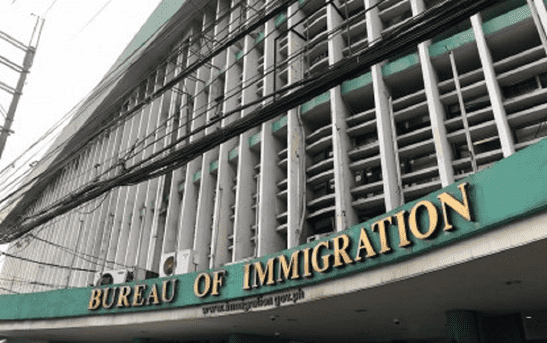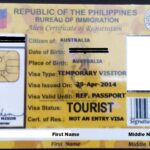Foreign nationals married to Filipino citizens who wish to live indefinitely in the Philippines must secure the 13A Non-Quota Immigrant Visa, also known as the “Marriage Visa.” This visa allows foreign spouses to legally reside and work in the country based on a valid marriage recognized under Philippine law. Understanding the eligibility criteria, documentary requirements, application procedures, and benefits of the 13A visa is essential to ensure a smooth and successful application process.
What is the 13A Non-Quota Immigrant Visa?
The 13A Non-Quota Immigrant Visa is a special visa category granted to foreign nationals legally married to Filipino citizens. Unlike quota visas, it is not subject to annual limitations or quotas and allows the holder to stay indefinitely in the Philippines.
This visa is governed by Commonwealth Act No. 613, Section 13(a), and is issued upon validation of a bona fide marriage and compliance with Philippine immigration and health regulations. Visually, the 13A visa holder receives an Alien Certificate of Registration (ACR I-Card) as proof of permanent residency status.
Eligibility Criteria for the 13A Visa
Foreign nationals seeking the 13A visa must satisfy these eligibility requirements:
- Be legally married to a Filipino citizen, with the marriage valid under Philippine laws.
- Possess no derogatory records from government law enforcement agencies, both in the Philippines and abroad.
- Have no dangerous, contagious, or loathsome diseases.
- Demonstrate sufficient financial capacity to support themselves and their family without becoming a public burden.
- Have been allowed entry into the Philippines and authorized to stay by the Bureau of Immigration.
- Comply with all documentary and procedural requirements detailed by the BI and consular authorities.
Compliance with these criteria safeguards the integrity of the visa program and protects public interests.
What are the Requirements for a 13A Visa Application?
Preparing and submitting the complete and accurate documentation is critical. The following must be included:
- Completed 13A visa application form signed by the applicant.
- Joint letter request addressed to the Commissioner of the Bureau of Immigration by the foreign spouse and Filipino petitioner.
- Valid passports of both spouses, with at least one year of validity at the time of filing.
- Philippine Statistics Authority (PSA)-issued marriage certificate authenticated.
- Birth certificate of the Filipino spouse.
- Four (4) recent passport-sized ID photos.
- Two duly accomplished medical examination forms by a licensed physician within the applicant’s country of residence.
- Police clearance certificate issued within six months prior to application, with authentication by the Philippine Embassy or Consulate in the applicant’s country.
- Proof of financial capacity, such as bank statements, credit card statements, property ownership documents, or other financial instruments supporting the applicant’s self-sufficiency.
- National Bureau of Investigation (NBI) or National Intelligence Coordinating Agency (NICA) clearance if residing in the Philippines for six months or more.
- Payment of the applicable visa fees.
Documents issued outside the Philippines must be translated into English (if in a language other than English) and either apostilled or authenticated as required by the relevant authorities.
Application Process for the 13A Non-Quota Immigrant Visa
To apply for a 13A visa, here are the steps that you need to follow:
Step 1: Compile Required Documents
Verify the completeness and authenticity of all paperwork, ensuring passports, marriage certificates, clearances, and financial documents meet requirements.
Step 2: Submission Options
Applicants residing abroad may submit applications in person or by mail to the nearest Philippine Embassy or Consulate. Applicants in the Philippines can file directly with the Bureau of Immigration.
Step 3: Schedule and Attend Interview
Applicants are typically required to appear for an interview with the visa officer, who will assess the bona fides of the marriage and verify documents.
Step 4: Undergo Medical Examination
Complete mandatory medical tests as part of the health clearance process, as per BI standards.
Step 5: Wait for Processing and Approval
Visa processing times can range from several weeks to months, depending on application completeness and BI workload. The applicant will be notified once a decision is made.
Step 6: Visa Issuance and ACR I-Card
Upon approval, the foreign spouse receives a visa stamp and an ACR I-Card, allowing indefinite stay and multiple entry privileges. The ACR I-Card also serves as a primary identification document for foreign residents.
Benefits of the 13A Visa
The 13A non-quota immigrant visa offers significant advantages:
- Indefinite Stay: Holders can remain in the Philippines indefinitely without annual renewals.
- Work Authorization: 13A visa holders can apply for a work permit, enabling legal employment.
- Multiple Entries: The visa allows holders to freely enter and exit the Philippines freely.
- Family Inclusion: Dependents—spouses and unmarried children under 21—can be included in one application.
- Simplified Path to Permanent Residency: ACR I-Card holders enjoy many benefits akin to permanent residents.
These features make the 13A visa a popular route for foreign spouses wishing to live, work, and raise families in the Philippines.
Common Challenges and How to Avoid Them
While the 13A visa process is straightforward for most applicants, they can face challenges including:
- Incomplete or poorly authenticated documents leading to delays
- Inconsistent or unverifiable marriage documentation
- Failure to demonstrate financial capacity appropriately
- Overlooking medical or police clearance requirements, especially for applicants residing in the Philippines
- Delayed interviews or missed appointments
Engaging expert immigration consultants helps navigate regulations, prepare paperwork correctly, and avoid unnecessary delays.
Renewal and Long-Term Compliance
Once issued, the 13A visa does not require yearly renewal for stay, but the holder must maintain a valid ACR I-Card, renewed every two years. Changes in marital status, employment, or address must be reported to the Bureau of Immigration promptly.
If the marriage dissolves legally, the foreign spouse’s visa status may be affected, potentially requiring a change of status or departure.
Final Thoughts
For foreign nationals married to Filipino citizens, the 13A Non-Quota Immigrant Visa is the key to lawful, indefinite residence and participation in Philippine society. Meticulous preparation of documents, understanding eligibility and filing procedures, and compliance with post-issuance requirements can significantly ease the journey. Professional assistance from visa specialists can further enhance application success and help families focus on their new lives together.
Need Expert Help for Your 13A Non-Quota Immigrant Visa?
Work Visa Philippines is your trusted partner for handling the entire 13A visa process—from initial document review, interview preparation, to ACR I-Card application. Let us help you reside legally and comfortably in the Philippines with your Filipino spouse. Contact us today:
- Contact Us Here
- Fill Out the Form Below
- Call us at +63 (02) 8540-9623





